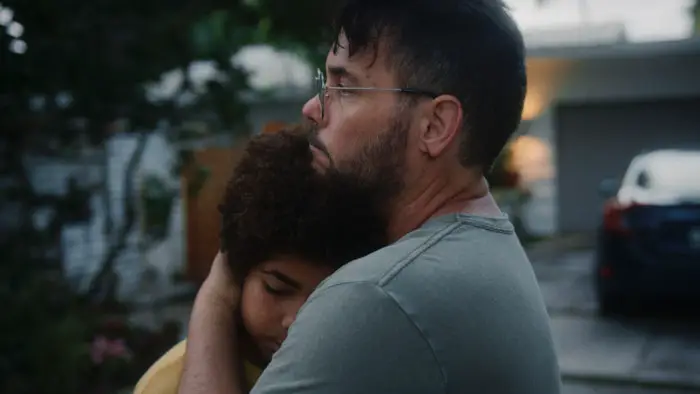
Writer/director Andrew Paul Davis’ second narrative feature, Pompano Boy, set in his hometown of Pompano Beach, Florida, follows Art (Todd Bruno), a minister recently fired from his job for having contrasting views on suffering and salvation. He establishes his own church to spread his more open-minded beliefs to anyone willing to listen. His photographer wife, Izzy (Arlette Del Toro), is taking any photography gig she can find. The middle-class couple is struggling financially, but that doesn’t deter them from taking in Elijah (Blake McLennan), a young boy who is understandably anxious and scared by the change of environment.
The film is a moderately effective drama about the shortcomings of the foster care system. Given that Art is a minister and Izzy is a professional photographer, they would seem like a good fit to look after a child, but Davis writes them as flawed characters ill-equipped to do so. That’s not to say they are vile or incapable of learning how to care for a foster child, but the filmmaker knows how difficult it is to raise a child who not only suffers from past trauma but is struggling to adapt to a living situation without their biological parents. The movie presents a couple guided by faith who may not be as prepared to raise a child as an outsider would expect. No parent is incapable of making mistakes when it comes to the welfare of their child, no matter their best intentions.

“The middle-class couple…[take] in Elijah, a young boy…”
Pompano Boy acknowledges the importance of financial stability, but even that won’t be enough to treat Elijah’s trauma successfully. His trauma compels him to make rash decisions, except his trauma is unexplored and not truly known to Art or Izzy, so they go about raising and disciplining him without understanding why he reacts the way he does. It could be that children are more hesitant or frightened to share their traumatic experiences, or they are unsure how they felt due to their young age. Considering that, Bruno and Del Toro give modest and grounded performances as new parents trying their best.
The drama often shifts to the perspective of Candace (Rita Cole), Elijah’s biological mother. She’s fighting for custody and dealing with the return of a volatile ex-boyfriend (Timothy Mark Davis). The scenes involving Candace and her boyfriend are less complete and more disjointed than the rest of the narrative. Even so, by giving the biological mother a voice in the film, Davis highlights a critical shortcoming of the foster care system: there is an extreme lack of focus on maintaining a child’s relationship with their biological parent(s).
For a low-budget drama, Pompano Boy benefits from having strong lead performances and an insightful script that deals with the errors of well-intentioned people and the failures of a system that doesn’t always do what’s best for the child or the biological parent. Unfortunately, the execution is often lacking due to inept supporting performances and feigned emotion. Still, there are many truths here that speak volumes about parenthood and the foster care system.

"…strong lead performances and an insightful script..."


